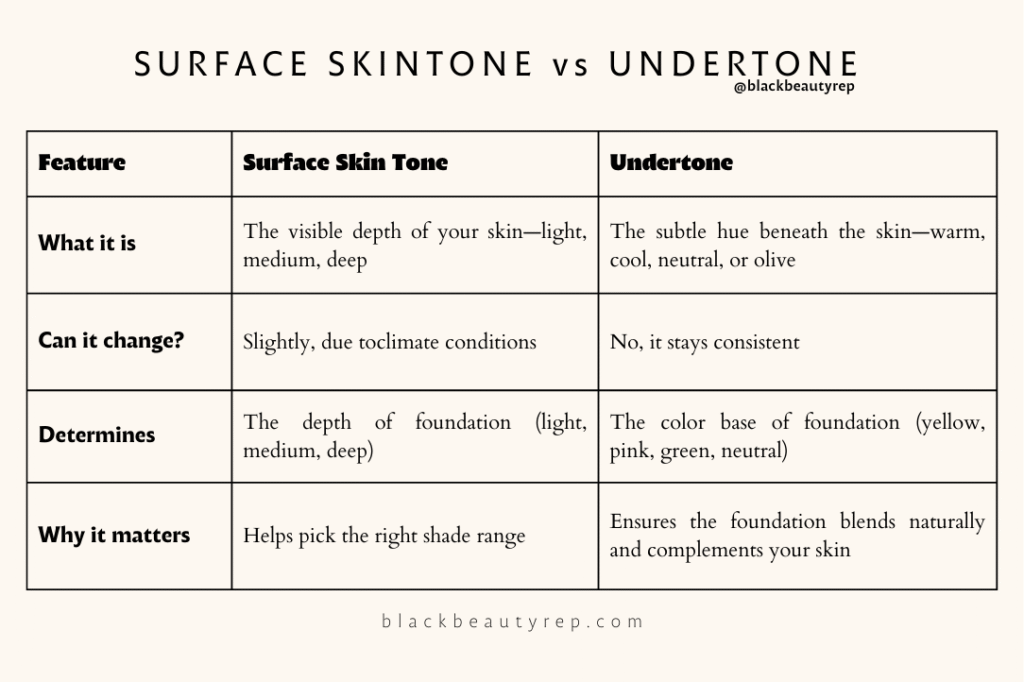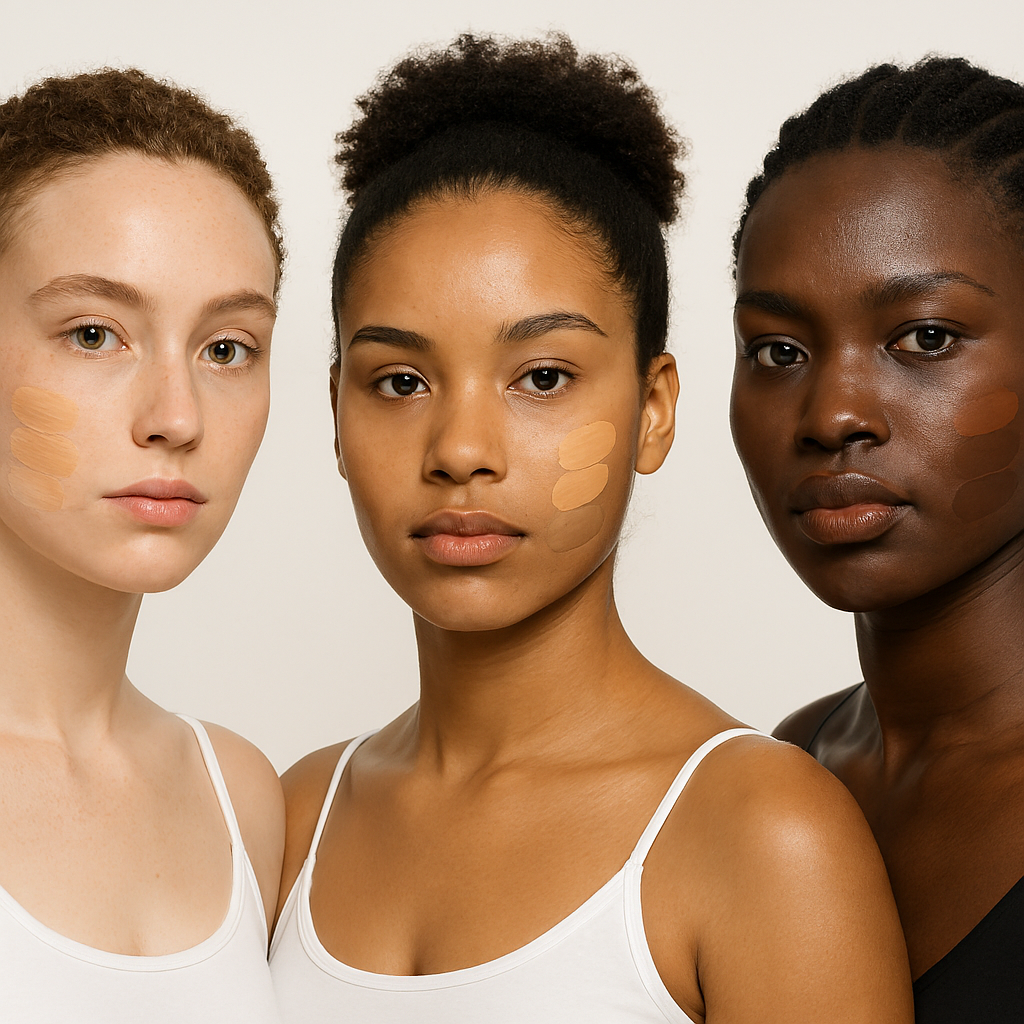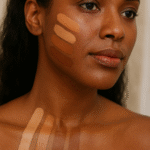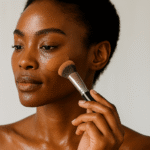If you’re wondering how to choose foundation shade that blends perfectly with your skin, understanding your undertone is the first step.
A common misconception is that certain undertones only exist in specific skin tones—for example, fair skin must be cool, medium is neutral, or deep is always warm.
In reality, warm, cool, neutral, and olive undertones exist across all skin tones, from fair to deep.
Knowing your undertone ensures your foundation looks natural and flattering, no matter your complexion.
How to Choose Foundation Shade Based on Your Undertone
Your undertone is the subtle hue beneath the surface of your skin. It has nothing to do with how light or dark you are.
Debunking myths:
- Cool undertones are not only for fair skin—deep skin tones can have cool undertones too.
- Neutral undertones can appear in any skin tone, not just medium or fair.
- Warm undertones can exist in fair, medium, and deep skin alike.
- Olive undertones are a unique type of neutral with a subtle green or muted cast. Also can appear in medium to deep skin tones.
By focusing on undertone instead of surface color, you can select a foundation shade that truly complements your skin.
How to Identify Your Undertone (Step-by-Step)
- Vein Test
Blue/purple veins = cool
Greenish veins = warm
Mix of both = neutral or olive - Jewelry Test
Gold looks better = warm
Silver looks better = cool
Both gold and silver look good = neutral/olive - Clothing Colors Test
Warm colors (orange, mustard, earthy tones) flatter = warm undertone
Cool colors (blues, purples, jewel tones) flatter = cool undertone
Many colors look good, or greenish/muted tones flatter = neutral/olive undertone
Important: Undertones are independent of skin tone. Fair, medium, and deep skin can each be warm, cool, neutral, or olive. Avoid assumptions based on surface color alone.
Surface Skin Tone vs Undertone: What’s the Difference?

Key point:
- You need both base tone and undertone to select a foundation that matches perfectly.
- Many people focus only on skin tone and ignore undertone, which is why foundations may look “off” even if the shade appears correct on the surface.
For more detailed guidance, see our Ultimate Guide to Finding Your Perfect Foundation Shade.
Foundation Shades for Each Undertone
| Undertone | Shade Description |
| Warm | Golden, yellow, peach bases |
| Cool | Pink, red, bluish bases |
| Neutral | Balanced mix of warm and cool |
| Olive | Muted yellow-green or slightly green bases to complement the natural olive tint |
✔ Test shades on your jawline or chest in natural light to ensure a perfect match
✔ Try 2–3 shades side-by-side to see which disappears seamlessly
Common Mistakes When Choosing Foundation Shade
- Assuming undertone and skin tone is the same
- Matching surface color instead of undertone
- Ignoring oxidation (shade changes after a few minutes)
- Testing only on wrist/hand
Understanding how to choose foundation shade starts with recognizing your undertone, whether it’s warm, cool, neutral, or olive. Once you know your undertone, selecting a foundation that blends naturally and enhances your complexion becomes effortless.
For a deeper dive into undertones and finding your perfect foundation match, check out Healthline’s detailed guide.
FAQs: Choosing Foundation Shade for Your Undertone
Absolutely. Undertones exist across all skin tones. Deep, medium, and fair skin can be warm, cool, neutral, or olive.
Olive undertones often appear as muted green or yellow-green. If both gold and silver jewelry look good and muted greenish clothing flatters you, you may have an olive undertone.
Olive undertones often appear as muted green or yellow-green. If both gold and silver jewelry look good and muted greenish clothing flatters you, you may have an olive undertone.



